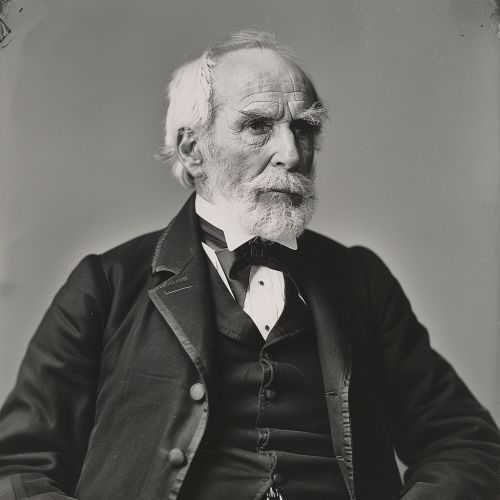Joseph Lister
Early Life and Education
Joseph Lister was born on April 5, 1827, in Upton, Essex, England. He was the fourth of seven children born to Joseph Jackson Lister, a pioneering optics scientist, and Isabella Harris, a wine merchant's daughter. Lister's father's work in optics, particularly his development of the compound microscope, would greatly influence Lister's future career in medicine.
Lister received his early education at home from his father, who instilled in him a love for natural sciences. He later attended two Quaker schools, where he excelled in English, mathematics, and natural sciences. At the age of 16, he enrolled at the University College, where he studied arts and sciences.
In 1844, Lister decided to pursue a career in medicine and enrolled in the Faculty of Medical Sciences at University College. He excelled in his studies, winning numerous awards and scholarships. In 1850, he graduated with a Bachelor of Medicine and became a Fellow of the Royal College of Surgeons (FRCS) in 1852.


Medical Career
Lister began his medical career as a house surgeon at University College Hospital, London. In 1853, he moved to Edinburgh, Scotland, to work as an assistant to James Syme, a renowned surgeon at the Royal Infirmary. Lister learned a great deal from Syme, particularly the importance of cleanliness and careful handling of tissues during surgery.
In 1860, Lister was appointed as the Regius Professor of Surgery at the University of Glasgow. During his tenure, he observed that the rate of post-operative infections was alarmingly high. He hypothesized that these infections were caused by microorganisms, a theory that was in line with the germ theory of disease proposed by Louis Pasteur.
Lister began experimenting with various antiseptic agents and developed a method of treating wounds with a solution of carbolic acid (phenol). He found that this significantly reduced the rate of post-operative infections. This method, known as the antiseptic principle, revolutionized surgical practice and significantly reduced the mortality rate from surgical procedures.
In 1869, Lister returned to Edinburgh to succeed Syme as Professor of Clinical Surgery. He continued to promote the use of antiseptic techniques, and his methods were gradually adopted by other surgeons. In 1877, he was appointed as Professor of Surgery at King's College, London, where he continued his research and teaching until his retirement in 1893.
Later Life and Legacy
After his retirement, Lister continued to advocate for the use of antiseptic techniques in surgery. He received numerous awards and honors for his contributions to medicine, including a baronetcy in 1883 and a peerage in 1897. He served as the President of the Royal Society from 1895 to 1900 and was a member of the Royal Swedish Academy of Sciences.
Lister died on February 10, 1912, at his country home in Walmer, Kent. He was buried in Westminster Abbey, an honor reserved for individuals of significant national importance.
Lister's contributions to medicine have had a lasting impact. His development of antiseptic surgical methods has saved countless lives and continues to be a fundamental part of modern surgical practice. The Listeria genus of bacteria and the Lister Institute are named in his honor.


